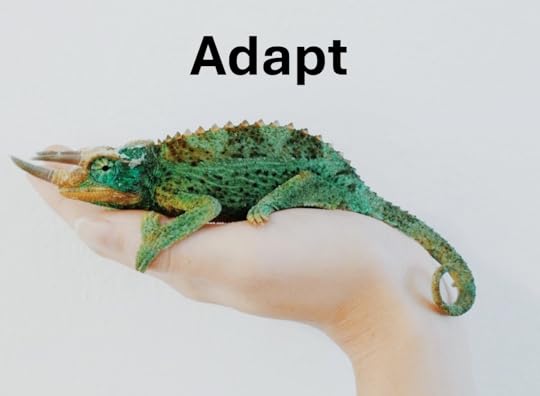Alex Quigley's Blog, page 5
January 25, 2025
Supporting shy pupils to talk in class

Shy pupils can easily, often unnoticed, slide to the sides of lessons. Supporting such pupils, who are nervous to talk with their peers or in front of the class, can be a tricky business but also vital for both their well-being and their learning.
The quiet, and seemingly passive, behaviour of shy pupils can see them miss important learning opportunities. If they don’t share ideas, they may miss the opportunities to develop their thinking or receive valuable feedback. Not only that, teachers may underestimate the abilities of shy pupils, thereby subtly lowering expectations.
New research on supporting shy pupils has posed some helpful insights. This small study, based in German secondary school classrooms, is entitled ‘Opening the Gateway to Oral Participation: Exploring Facilitative Contextual Factors in the Association Between Student Shyness and Hand Raising’ (2024).
The researchers explored two areas: social relatedness factors (pupil-teacher relationship and peer relationships) and teaching factors (‘warm calling’, wait time, class size, and school subject). They used hand-raising as an indicator of class participation and engagement in learning.
It makes sense that relationships matter to shy pupils. Confidence that their teacher is sensitive to their needs is likely to breed increased engagement, while we can assume similar for reliable friends being present in their classes.
Additionally, we would assume having more time to think (wait time) would be helpful, with ‘warm calling’ (letting pupils know in advance they may be called to contribute) proving another confidence builder. For some pupils, being good at maths but not in other areas of the curriculum may lead to increased talk and participation in that area of strength, so it is another useful consideration for teachers of shy pupils.
What did the researchers find that could guide busy teachers?
There were positive effects for increasing average warm calling and wait time in class. This should include a careful deployment of ‘cold calling’. The researchers indicate that ‘cold calling’ can be helpful from time to time, after some confidence building. There was a positive subject specific effect, so understanding what subjects pupils perceive to be their strengths (understanding their ‘self-efficacy’ beliefs) is likely to be helpful. Pupil-teacher relationships matter. Teachers who were sensitive to shyness elicited higher classroom engagement. Perhaps surprisingly, strong peer relationships inhibited pupils putting their hands up. Maybe they don’t want to compromise their status or friendships? Popularity may decrease the urge to contribute and to be perceived as a ‘geek’. Teachers should be careful not to assume 'sitting by a friend' is the solution.These approaches may appear to be good practice we would apply to all pupils, which is helpful, but it may be particularly useful to consider those pupils we worry may fall to the side in busy lesson time.
Related reading:'Do we need to learn how to listen?' This blog makes the claim that we need to pay more attention to listening when it comes to instruction and learning. READ MORE HERE . 'Disciplinary talk'. This blog explores the subject specific differences that can attend a focus on classroom talk. READ MORE HERE .January 18, 2025
The 3Rs - Reading, writing, and research to be interested in #55
January 11, 2025
The 'Adaptive Teaching' Collection

Adaptive teaching describes the moment-to-moment responsiveness that is orchestrated continuously in the classroom by expert teachers.
In the past few years, in England at least, its prominence has arisen through national frameworks as an alternative to the problematic practices that have attended the label of ‘differentiation’.
It features in the Early Career Framework, national qualifications, and is rooted in decades of research, such as Lyn Corno ‘On Teaching Adaptively’.
I like adaptive teaching because it describes, and defines, the many decisions and choices teachers enact in the classrooms to meet the varied needs of a class – whatever their stated need or prior knowledge. It offers an umbrella term for high quality explicit teaching, along with formative assessment strategies that help anticipate and guide learning.
Like any fresh pedagogical phrase, it can offer helpful new insights, or it can prove another buzzword to keep teachers unduly busy. To resist the problems that attend fuzzy edu-fashions, I have collated an ‘adaptive teaching’ collection to help define and describe it in helpful terms for busy teachers:
Adaptive teaching: What is it anyway? This blog attempts to pose an accessible definition of the term and practice. READ MORE HERE . Adaptive teaching or reasonable adjustments? A common query is how adaptive teaching difference from the ‘reasonable adjustments’ offered for pupils with SEND. This blog poses some helpful dividing lines and examples. READ MORE HERE . Adaptive teaching: Scaffolds scale, structure and style. This blog poses additional parameters for how adaptive teaching differs from differentiation and how it can be described at a task level. READ MORE HERE . Adaptive teaching and the power of anticipation. A misconception is that adaptive teaching just happens in the moment during instruction. It can be better anticipated, planned for, and therefore it is useful to see it help from lesson and curriculum planning too. READ MORE HERE . Adaptive teaching and vocabulary instruction. It is helpful to see adaptive teaching enacted in concrete terms. This blog explores how explicit vocabulary instruction offers a manageable and meaningful classroom approach. READ MORE HERE . Differentiation is dead: Long live adaptive teaching. I have written for TES on how differentiation has been replaced and why this is a broadly good thing. READ MORE HERE (£) . ‘Adaptive teaching: How to use microadaptations’. I have written for TES with practical examples of small adaptations that work in the classroom. READ MORE HERE (£) .Popular blogs and articles by experts:
Clare Sealy has shared a helpful breakdown (in detailed examples) of ‘Adaptive Teaching: The Four Verbs Approach’. READ MORE HERE .Jon Eaton, from Kingsbridge Research School, has written for the EEF on ‘Moving from differentiation to adaptive teaching’, including a useful free resource. READ MORE HERE . Kirsten Mould has written for the EEF on ‘Assess, adjust, adapt: what does adaptive teaching mean to you?’ It explores adaptive teaching with a SEND lens, addressing scaffolding and more. READ MORE HERE . Harry Madgwick has written for the EEF on the evidence attending the ECF and adaptive teaching in his blog ‘Exploring the evidence: ‘Adaptive teaching’ and effective diagnostic assessment’. READ MORE HERE . Margaret Mulholland has written for TES on ‘Adaptive teaching: Why it goes wrong and how to fix it’. It punchily explains why it goes wrong in schools. READ MORE HERE (£) . Margaret Mulholland has also written for TES on ‘Why effective adaptive teaching means changing our focus’. It explains how adaptive teaching can support those who struggle most first, so it is an inclusive approach for classrooms. READ MORE HERE (£) .January 4, 2025
The 3Rs - Reading, writing, and research to be interested in #54
New Year's resolutions & doing hard things

It is that time of the year. Christmas excesses are replaced by new year commitments. Gym memberships are up; diets and exercise regimes are initiated. The urge to set resolutions is pinned to adverts and endless article messages, but the inspiration too often fades quickly.
I’d established an annual habit of slagging off New Year’s resolutions. Except this year, I was reading ‘Do Hard Things: Why We Got Resilience Wrong and the Surprising Science of Real Toughness’, by Steve Magness, and it made me consider how it posed helpful messages about resolutions, the tough challenge of persisting and building routines.
The book challenges the notion of toughness as refusing to give up, gritty persistence at all costs, or old-school tough love. These messages relate neatly to the real challenge of persisting with resolutions and actually doing hard things.
Here are some handy insights I gleaned from the book on resolution setting and habit building:
Lower the bar; raise the floor. Instead of setting personal best challenges or taking on massive goals (running your first marathon…writing that first novel), be more pragmatic. Instead of setting a PB, aim for beating the average of your last 5 performances; instead of writing a novel, writing a detailed plan and a chapter. Start small, before going big. It is common wisdom to start small, but when the busyness of January kicks in, small achievements are essential to make resolutions achievable. We may want to find the new dream job, but can we prioritise researching our options more fully first? We may want to read 50 books a year, but 5 first might be the resolution you need to start with in January. Set resolutions based on the process not the outcome. We cannot always control the outcome of our efforts. We may not become a functioning athlete or a best-selling novelist. We can take enjoyment and achievement from persisting with the process. You may not write that book, but writing everyday is a worthwhile achievement. Give yourself the choice to stop and drop. Our notions of toughness and grit is to persist with any challenge. It isn’t realistic and it sees the death of most resolutions. Instead, miss an exercise day, don’t worry if your daily writing isn’t every day (allowing for 'cheat days' helps). Doing most days with any of these resolutions will likely lead to real successes. Create just-about-manageable habits to sustain your resolutions. We all respond to deadlines and routines – they work – even when they annoy us. I write a fortnightly newsletter. Sometimes that drives me mad and the deadlines it generates are frustrating. But it is just-about-manageable and it gets me reading and writing more regularly if I didn’t have the routine.Maybe these insights are not groundbreaking or wholly novel. Maybe their flawed and problematic. In being all of those things, they’re just like New Year’s resolutions. And they might just be useful.
You can help me keep up the habit of my fortnightly newsletter - The 3Rs - where I share interesting writing, reading, and research from the world of education and beyond, by signing up free here: https://alexquigley.co.uk/tag/newsletter/.
This week I include a book review of 'Doing Hard Things'.

December 14, 2024
The 3Rs - Reading, writing, and research to be interested in #53
December 7, 2024
Why ‘word consciousness’ matters

We can learn language in small increments - word for word and phrase by phrase, making connections for a deeper understanding of rich language patterns. Teachers experienced in communicating the language of the curriculum know that teaching vocabulary is valuable for many, and for some pupils it proves critical to their success.
When we consider vocabulary instruction, we typically leap to ideas about explicit vocabulary instruction. This makes sense. Science teachers need to teach complex words like ‘osmosis’, whereas geography teachers need to teach tricky phrases like ‘divergent boundary’ and ‘convergent boundary’. Teachers of younger children need to access a rapidly increasing wealth of words to help unlock the stories they read.
But every teacher knows that you cannot teach all the words! Pupils need to read, read, read, and be exposed to lots of new and unfamiliar words in their classroom talk. They learn implicitly from talking and reading lots and lots. Ultimately, they’ll meet a lot of the new words they learn outside of being taught those words directly.
What do we mean by word consciousness?
This is where the powerful concept of ‘word consciousness’ comes in. Coined by researchers, Stahl and Nagy, word consciousness describes how pupils develop an interest and awareness of words they encounter each day.
"Word consciousness refers to the knowledge and dispositions necessary
for students to learn, appreciate, and effectively use words."
Scott and Nagy (2009), 'Developing Word Consciousness'
Stahl and Nagy describe the pupil dispositions that characterise word consciousness:
Feel for how written language works.
Sensitivity to syntax (the structure of sentences.
Awareness of word parts (morphology).
In depth knowledge of specific words (such as meanings, word families etc).
Activities for promoting word consciousness.
This sensitive awareness of language can help pupils activate their prior knowledge. For instance, when pupils hear or read the word 'crust', they may quickly relate morphologically related words, such as 'crusty' and 'crusted' (or even 'encrustation'!). They are likely to connect it to the geography of the earth in geography, or the more everyday appearance related to food, like pie crusts and toast. Of course, it will be rare that they know the Latin derivation - 'crusta', meaning 'hard outer covering or shell' - or easily relate it to other tricky terms like 'continental crust' or 'lithosphere'.
For many pupils who read well in particular, when they encounter new or less familiar words, like 'encrustation' or 'lithosphere', they can develop this sensitivity to words and phrases seemingly naturally. Like having an ear for melody or when music is off key, pupils can better notice interesting words and phrases, which offers them a strategy that can be used independently of being taught new words.
It can prove particularly helpful in the classroom, given so many of the words pupils need to know have multiple meanings (they are 'polysemous'). Words like 'bleeding', 'cardinal', or 'factor', can mean one thing in the 'real world', another in the maths classroom, and other in history. These words and phrases are like a moving target for many pupils. 'Word consciousness' proves a helpful language detection device for pupils. It can help them better notice connections between words, phrases and ideas, as well as help them to detect anomalies or apt analogies when it comes to language choices.
[image error]Cultivating a richer array of connections can happen spontaneously, but even better if it is supported, rewarded and, where possible, taught. Many of our multilingual pupils will draw upon their language knowledge and spy cognates (words with the same origins across languages, such as 'Inteligente' in Spanish is the equivalent of 'intelligent' in English).
In daily classroom talk, teachers (and pupils) can make vital connections and develop word consciousness. Some strategies can include:
Word Hoards: Encourage pupils to keep a journal of interesting or unfamiliar words they encounter (this can be on bookmarks, electronic or in special A5 books). They can define the words, note their origins, and write sentences using them. For example, a pupil reads the word serendipity in a book and writes: 'Serendipity means a happy accident. I experienced serendipity when I found met my best friend in town by chance.'Structured word inquiry: Pupils investigate word origins, meanings, and related words through etymology (word roots and their history) and morphology (root words, prefixes and suffixes). For example, exploring the word transport: trans- (across) + port (carry), whilst noting the other uses of 'trans'. ‘Word mapping’: Pupils are familiar with using graphic organisers in all sorts of guises, from Venn Diagrams to Fishbone diagrams. ‘Word mapping’ borrows specifically from concept maps, in that they are organised hierarchically, connecting words with the head word proving the main topic. For example, with ‘geothermic processes’ as a head word in geography, this would be followed by ‘endogenic’ and ‘exogenic’ processes. ‘Connect 4’: is a simple way to isolate and emphasise key vocabulary to connect. For example, in history, you could select the four words, ‘continuity’, ‘monarchy’, ‘power’ and ‘conservatism’ to prime a given topic. Then you ask students to make as many connections between the words as possible – the more the better.It is important to recognise that most activities that promote word consciousness happen in the to and fro of classroom talk. Pupils ask a question about a word or phrase, and we explore it. They may notice a word part and we research it. The more we model and cultivate this curiosity, the more we establish an independent habit for our pupils.
Word consciousness may just matter in the exam hall, as pupils unpick an unfamiliar word in a tricky exam question, or they may tell a fun story about the history of a word or phrase over dinner. Whatever the context, word consciousness can matter, and it can offer memorable learning and gift access to the tricky language of school.
Related reading:
My 'Three pillars of vocabulary instruction' blog shows how word consciousness works alongside explicit instruction - READ MORE HERE . Bradford Research School have written brilliantly on 'Building Word Consciousness' - READ MORE HERE .November 30, 2024
The 3Rs - Reading, writing, and research to be interested in #52
Disciplinary talk

"As pupils progress through an increasingly specialised secondary school curriculum, there is a growing need to ensure that pupils are trained to access the academic language and conventions of different subjects. Strategies grounded in disciplinary literacy aim to meet this need, building on the premise that each subject has its own unique language, ways of knowing, doing, and communicating.”
EEF, ‘ Improving Literacy in Secondary Schools ’
Language used in the classroom becomes increasingly sophisticated, specialised and subject specific as pupils progress from primary to secondary school. Disciplinary talk is a recognition that mathematicians, scientists, and geographers, communicate in subtly different ways, and that talk routines can be well matched to curriculum content in those different areas.
Learning through disciplinary talk can include:
Reasoning in mathematics. Pupils verbally explain the steps they took to solve a problem (e.g., “I divided both sides of the equation by 2 because I needed to isolate the variable.”).Hypothesis discussions in science. Pairs discuss their predictions for an experiment, explaining the science behind their reasoning (e.g., “I think the balloon will expand because heat causes air particles to move faster and spread out.”).Decision-making exercises in geography. Groups discuss where to locate a new settlement based on geographical factors, justifying their choices.Improvisation and reflection in drama. After an improvisation exercise, students explain their choices and evaluate the impact of their performance.Analysing peer performances in PE. Pupils provide purposeful feedback on a peer’s performance in a skill, using technical vocabulary (e.g., “Your follow-through on the throw needs to be longer to increase accuracy.”).Where does disciplinary talk fit with wider literacy approaches?
Elements of generic talk routines – such as ‘Think-Pair-Share’ – can be intelligently adapted to meet subject specific needs, but such adaptations need to be clearly considered. School leaders should be wary of implementing whole school (or Trust) approaches to talk routines that are not sensitive to the needs of subject disciplines, alongside considering the diverse needs of their pupils.
General literacy approaches, such as explicit vocabulary instruction, or developing reading fluency, can also be considered with subtle routine differences in mind. For example, in music, vocabulary instruction likely needs to encompass soundscapes, whereas in MFL vocabulary instruction may morph into teaching phrases and listening tasks.
What is an obvious big benefit from focusing on disciplinary talk? Well, we do most of this stuff already. Even small adaptations, such as tweaking improvements to the quality of classroom dialogue, are likely available. Done well, small gains like building better dialogue and thinking, could add up over time and make a big positive difference over time.
Some reflective questions include:
How well established is disciplinary talk across my school? For primary colleagues, how well are we developing the necessary foundations of talk? What subject supports are in place to develop the confidence, skill and practices of all teachers across different curriculum disciplines? What talk routines do we already do well and how can we build on them?November 16, 2024
The 3Rs - Reading, writing, and research to be interested in #51
Alex Quigley's Blog
- Alex Quigley's profile
- 12 followers



